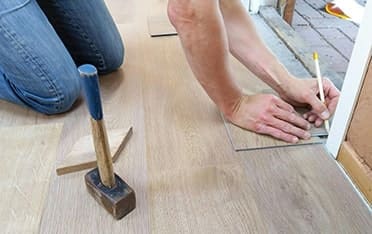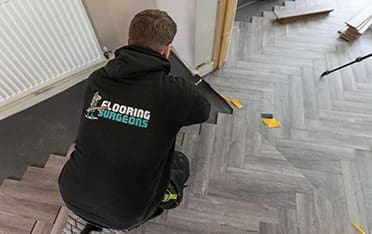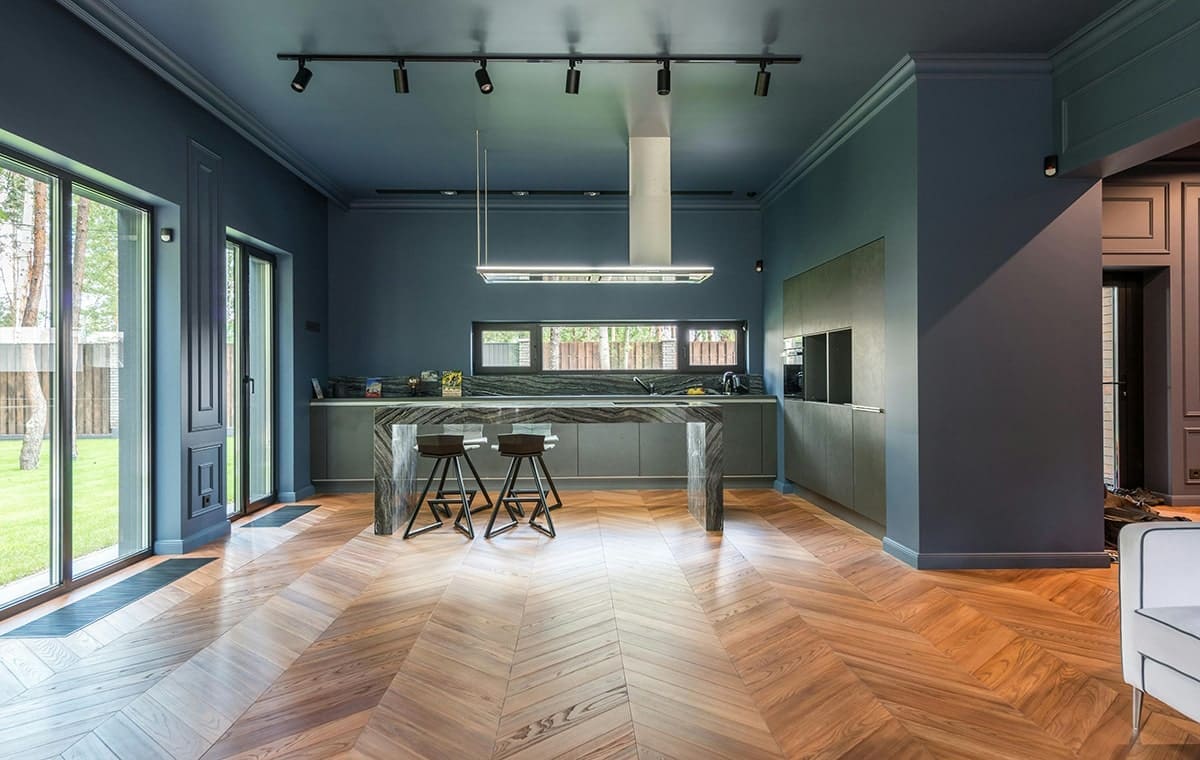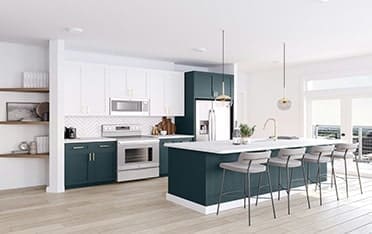The “best” type of flooring depends on various factors, including your specific needs, budget, and personal preferences, as well as the room where the flooring will be installed. There is no one-size-fits-all answer to this question.
There are a variety of different flooring options available to choose from each with their benefits, drawbacks and list of rooms where they may be more suitable. This should help you in deciding which flooring is best for you based on your needs.
Factors to consider when choosing flooring
Durability: Durability is key in assessing the longevity of the flooring. Additionally it is equally important in determining whether or not the flooring is good for high traffic areas.
Maintenance: It is very important to understand what the upkeep requirements are for each floor. While some people don’t necessarily mind flooring that requires high maintenance, others will find it very tiresome and would prefer something which doesn’t require as much maintenance.
Aesthetics: Consider how well your flooring choice will align with the rest of your interior design.
Budget: It is crucial to establish a budget for yourself when choosing your flooring so that you can easily find the right one for you at the right price
Room-Specific Needs: Moisture levels, foot traffic, and functionality all need to be considered when determining which flooring is the right option for you.
Popular Types of Flooring
Solid Wood Flooring
Solid Wood Flooring is simply comprised of natural wood planks offering a timeless appeal
Pros: Durable, can be refinished, adds value to the home.
Cons: Expensive, susceptible to scratches and moisture.
Ideal Locations: Living rooms, bedrooms, dining areas.
Engineered Wood Flooring

Engineered Wood Flooring consists of multiple layers of synthetic material and a top layer of actual hardwood. This gives it greater durability whilst still maintaining a timeless aesthetic.
Pros: More moisture-resistant than solid wood, easier installation.
Cons: Limited refinishing potential
Ideal Locations: Basements, kitchens, areas with fluctuating humidity.
Laminate Flooring

Laminate Flooring is made entirely of synthetic materials which help to simulate the look of wood or stone.
Pros: Affordable, scratch-resistant, easy to install.
Cons: Cannot be refinished, may be susceptible to moisture damage.
Ideal Locations: High-traffic areas, living rooms, hallways.
Vinyl Flooring

Vinyl Flooring is a versatile synthetic flooring option available in planks, tiles, or sheets.
Pros: Waterproof options, budget-friendly, low maintenance.
Cons: May emit VOCs, less prestigious than natural materials.
Ideal Locations: Bathrooms, kitchens, laundry rooms.
Tile Flooring

Tile Flooring uses ceramic or porcelain tiles and is well known for its long-lasting durability.
Pros: Water-resistant, long-lasting, variety of designs.
Cons: Cold underfoot, hard surface may be uncomfortable.
Ideal Locations: Bathrooms, kitchens, entryways.
Stone Flooring

Stone Flooring uses natural stone tiles like marble, granite, or slate to create a highly durable, luxury flooring option.
Pros: Unique appearance, highly durable, adds property value.
Cons: Expensive, requires sealing, can be slippery.
Ideal Locations: Foyers, bathrooms, upscale kitchens.
Carpet

Carpet is an incredibly comforting textile flooring option available in various materials and styles.
Pros: Comfortable, noise-reducing, variety of colors and textures.
Cons: Stain-prone, may harbor allergens, requires regular cleaning.
Ideal Locations: Bedrooms, living rooms, low-traffic areas.
Bamboo Flooring

Bamboo Flooring is eco-friendly flooring made entirely from bamboo grass making it a sustainable, long-lasting option.
Pros: Sustainable, durable, stylish appearance.
Cons: Sensitive to humidity, quality varies.
Ideal Locations: Living areas, bedrooms, offices.
Cork Flooring

Cork Flooring is comprised of renewable material harvested from cork oak trees.
Pros: Comfortable, thermal insulation, eco-friendly.
Cons: Can be damaged by sharp objects, may fade in sunlight.
Ideal Locations: Bedrooms, playrooms, offices.
Concrete Flooring

Concrete Flooring is simply polished or stained concrete surfaces creating a highly durable and low maintenance flooring option.
Pros: Highly durable, low maintenance, modern aesthetic.
Cons: Hard underfoot, can be cold, potential for cracking.
Ideal Locations: Basements, industrial-style interiors, garages.
Linoleum Flooring
Linoleum Flooring is made up of natural material made from linseed oil, cork dust, and wood flour.
Pros: Eco-friendly, biodegradable, durable.
Cons: Can be susceptible to moisture, requires sealing.
Ideal Locations: Kitchens, hallways, utility rooms.
Conclusion
Ultimately, the best flooring type for you depends on factors such as your budget, the specific room’s purpose and environment, your aesthetic preferences, and your willingness to perform maintenance. It’s also important to consider factors like installation cost, long-term durability, and the potential impact on the resale value of your home. Consulting with flooring professionals and considering your unique needs will help you make the right choice for your situation.
Still unsure about which flooring is right for your room? No problem, contact us or visit one of our stores to speak with our flooring experts and claim your free home consultation today
https://www.flooringsurgeons.co.uk/contact-us/
Halesowen
214A Dudley Road. Halesowen, Birmingham, B63 3NJ
0121 274 8575
Monday – Friday: 9AM – 6PM | Weekends: 10AM – 4PM
Wolverhampton
317 Penn Rd, Wolverhampton, West Midlands, WV4 5QF
01902 836666
Monday – Friday: 9AM – 6PM | Sat: 10AM – 4PM | Sun: Closed
info@flooringsurgeons.co.uk
fitting@flooringsurgeons.co.uk
customerservices@flooringsurgeons.co.uk











